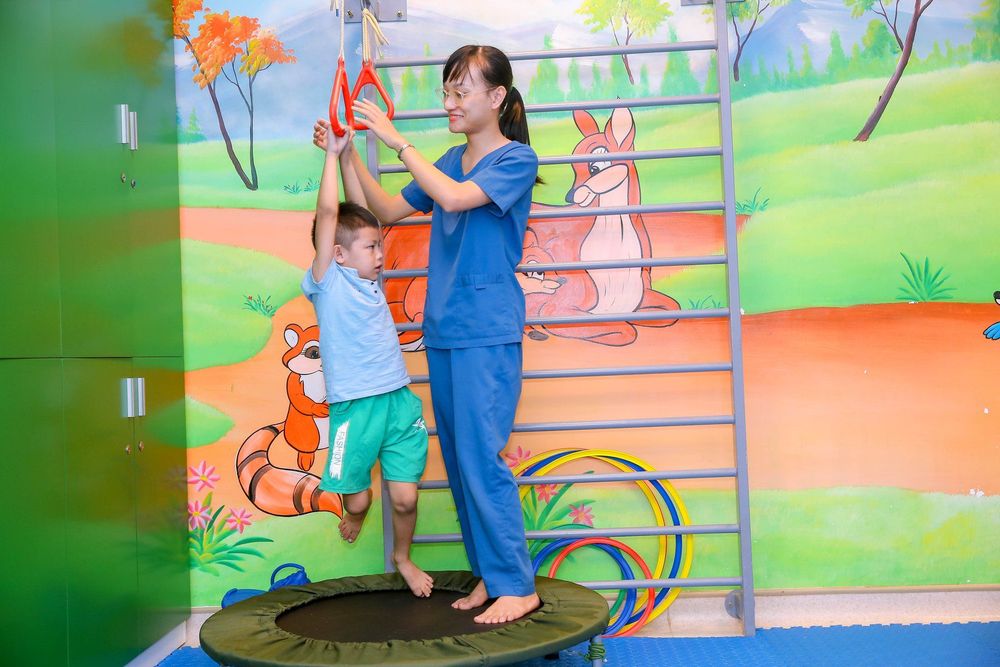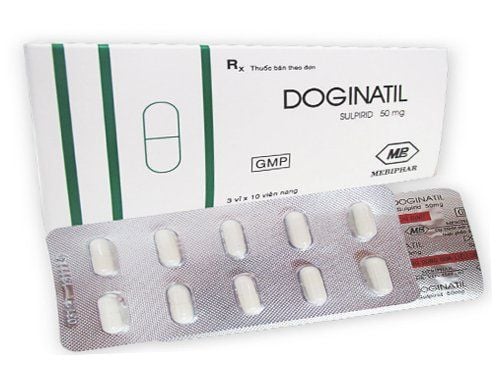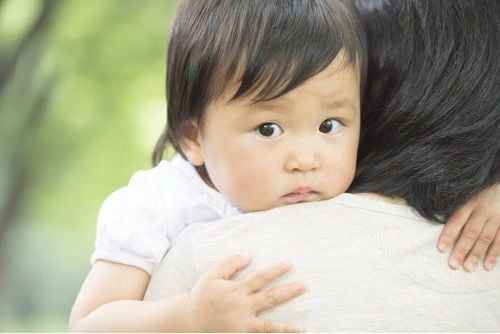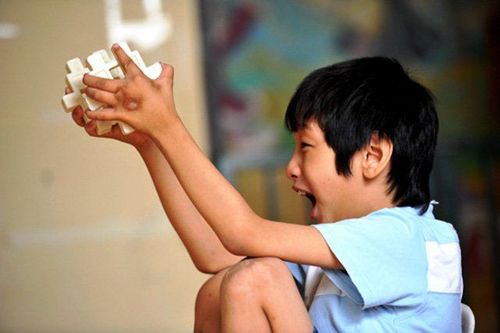This is an automatically translated article.
Childhood autism is a developmental brain disorder that affects the way a person experiences the world and interacts with the people around them. The official term is autism spectrum disorder (ASD). This condition is described as a spectrum because there are many possible symptoms, ranging from mild to severe.
1. What is Autism Spectrum Disorder in Children?
Autism spectrum disorder is a disorder related to the brain development of children, ranging from simple to complex. The first signs of autism appear in childhood - even infants can have symptoms of autism. Doctors are getting better and better at diagnosing autism, but parents are often the first to notice differences in their children.
Children with autism sometimes have difficulty grasping facial expressions and gestures, which can make it difficult for children to understand what others think and feel. Children with autism may also have difficulty expressing themselves and communicating or expressing their needs.
Other common symptoms include repetitive body movements (such as arm flapping) and sensitivity to stimuli such as loud noises, bright lights, and certain smells and surfaces.
No two children with autism have identical symptoms. Some children with ASD can repeat entire passages they have memorized from books but cannot speak. Others can read at 4th grade level by age 6 but still need help buttoning their clothes.
Currently, 1 in 68 children in the United States has autism and the rate is increasing. In our country, there are currently no accurate statistics on the number of autistic people in general and children with autism in particular. However, children with autism in children are increasing and becoming a burden on families and society.

Trẻ tự kỷ có thể bị nhạy cảm với ánh sáng hoặc âm thanh
2. What are the signs of autism?
Most children with autism are diagnosed around age 4, but signs of autism usually become apparent by age 2. And at least one symptom of autism can be noticed much earlier, although they are easy to miss.
Some parents notice early signs of autism before their child's first birthday, and most suspect something is wrong by the time their child is 18 months old. Problems with communication, social development, and motor skills can be seen as early as 6 months.
Jennifer Sharpless, speech-language pathologist at the Kennedy Krieger Institute's Center for Autism and Related Disorders, says: "One of the first concerns parents may have is their child's child. does not babble or use sounds and words to communicate.
In some cases, a child develops normally until the age of 1 or 2, and then regresses. For example, the child may have developed age-appropriate communication skills, and then stopped developing or lost some of the skills he had.
Diagnosis can also occur much later than age 3 or 4 in low-income areas, in rural areas far from major health centers, and in Latin American and Latino communities. African origin. Children with less severe autism are also often found at an older age.

Ba mẹ thường gặp khó khăn trong phát hiện dấu hiệu của trẻ tự kỷ
3. What causes autism?
The cause of autism spectrum disorder is unknown, however both genetic and environmental factors seem to play a role. Some experts believe that there may be many causes of autism in children.
Sally Ozonoff, Distinguished Professor and Vice President of Research in the Departments of Psychiatry and Behavioral Sciences at the UC Davis MIND Institute explains: “The main cause appears to be genetic, as evidenced by the proportion of pairs. Identical twins both have autism spectrum disorder (ASD) is very high. "However, not all identical twins develop ASD, so there must also be external factors that can put a child at risk for autism."
There are many theories about other possible causes, such as viruses, gastrointestinal problems and sensitivities to foods, but there are no definitive studies to support these. this declaration.
Some people still doubt that vaccines play a role, but most scientists and researchers say there is no evidence of a link between autism and vaccines.
An article published in the late 1990s asserted a link between the measles-mumps-rubella vaccine and autism, but the study was retracted - and the study was discredited for ethical reasons. ethics and science. In contrast, many studies have concluded that there is no link between MMR or thimerosal vaccines and autism. It should be noted that the measles, mumps, and rubella vaccine never contains thimerosal, but people sometimes confuse this. In addition, thimerosal - a mercury-containing compound used as a preservative - has been largely removed from childhood vaccines in the United States since 2001, yet autism is still on the rise in recent years. the following year.

Di truyền có thể là nguyên nhân gây tự kỷ ở trẻ
4. What are the risk factors for autism?
There is no way to predict that a child will develop autism. But there are some risk factors that make it more common, including:
Gender - boys are 4 to 5 times more likely to develop autism than girls Have a sibling with autism Meet have other forms of developmental disorder, such as Down syndrome or fragile X syndrome Premature or low birth weight Have an elderly parent Have a mother who took certain medications during pregnancy, such as valproic acid.
5. How are children with autism diagnosed?
There is no specific test to diagnose a child with autism. Doctors screen for conditions using specific signs and behavioral assessments. The Centers for Disease Control and Prevention (CDC) say that autism can be accurately diagnosed by the time a child is 2 years old.
The American Academy of Pediatrics recommends that doctors look for early signs of autism during routine physical exams for infants at 9, 18, and 24 months. Identifying autism spectrum disorders as early as possible and helping families receive support through early intervention programs.
If parents have any concerns about their child's development, frankly discuss with the doctor. At the visit, the specialist will ask the parents about the behaviors you have observed in the child, such as whether the child babbles or points to objects. If you notice anything that worries you, be sure to mention it.
If the doctor suspects a child may have autism, they will refer the child to specialists with expertise and experience in autism spectrum disorders. In addition to a pediatrician, neurologist, or psychologist, children with autism may also need to see an audiologist (for hearing testing), a speech therapist, and an occupational therapist. They can assess the child's body movements, verbal communication, listening skills, adaptability, and social skills.

Ba mẹ có thể đưa trẻ đến Bệnh viện Đa khoa Vinmec để được thăm khám khi có dấu hiệu bất thường
6. How are children with autism treated?
Early intervention can make a big difference in a child's long-term development. It can increase a child's desire to interact with others and help with specific daily living skills, like potty training and dressing. Children with autism who start therapy before age 3 often have the best results, but it's never too late to get help.
The needs of children with autism vary widely, depending on their symptoms, and many therapies can be helpful on a case-by-case basis. The best treatment programs are those that are individually tailored.
Alternative therapies in the treatment of autism in children include:
Behavioral therapy. This type of therapy is often based on an approach known as applied behavioral analysis, or ABA. It uses positive reinforcement to encourage desired behavior. When a child masters a particular skill, such as making eye contact or engaging in a conversation, he or she receives a reward or praise. Undesirable behavior can be ignored. Children start with small skills and gradually work on more complex skills. Sensory integration techniques. Children with autism often have difficulty integrating information from their senses. They may shrink when people try to touch them, are too sensitive to smells and certain fabrics, don't like getting dirty, or want constant movement. Treat by challenging the child to tolerate the stimulus. Relationship-based development interventions. These techniques use specific game-based interactions to foster a child's interest in others and social inclusion, while helping children master developmental milestones. Many of the techniques are designed specifically for children with autism, which means they follow the child's natural preferences while challenging them to master social, emotional, and intellectual milestones. For example, if a child is knocking on a toy car, you will encourage the child to build on that activity. You can imitate knocking or put a car in front of him to promote back-and-forth communication.

Hình ảnh bé được điều trị tự kỷ tại Vinmec
Speech, occupational and physical therapy. Speech therapy can improve a child's language and social skills. An occupational therapist can help a child with self-help skills such as learning to zip pants as well as play skills. And a physical therapist can help a child develop motor skills and improve posture and balance.
7. Is there a cure for autism in children?
Currently, there is no specific treatment to cure autism. But your child's doctor may prescribe medication to treat a specific behavior or condition associated with autism, including seizures, anxiety, depression, insomnia, irritability, impulsivity, and hyperactivity. .
Some parents report success with alternative therapies, such as supplementing their child's diet with vitamin B6 and magnesium, probiotics or omega-3 fatty acids. However, there are no reliable studies that prove these treatments work, and some may be harmful. Parents should talk to their doctor before using any alternative or dietary supplement for a child with autism.
Please dial HOTLINE for more information or register for an appointment HERE. Download MyVinmec app to make appointments faster and to manage your bookings easily.
Reference source: Babycenter.com













